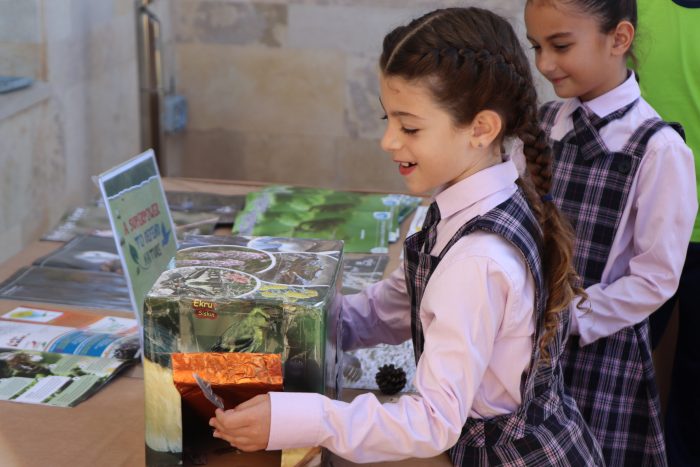BirdLife Malta celebrated the 30th anniversary of Dinja Waħda, its flagship environmental education programme, with a special awards ceremony held at the Radisson Blu Resort & Spa, Malta Golden Sands, on Thursday. The event honoured over 50 primary schools from Malta and Gozo for their outstanding contributions to conservation and environmental education.
Since its launch in 1994, Dinja Waħda has grown from a small initiative into a nationwide movement, instilling environmental values across generations. Run in collaboration with the Education Directorate, the programme has become an annual tradition in most primary schools in the Maltese Islands, a testament to the dedication of teachers, partners, and supporters. The ceremony celebrated the collective efforts of all who have been part of this 30-year journey.
In an audiovisual message for this occasion, the President of the European Parliament, Roberta Metsola, stated that the small size of the Maltese islands represents a challenge as they lack large environmental and natural spaces like those found in other countries. She said it is everyone’s responsibility to protect and enhance what we have for present and future generations.
“We’re thrilled to see so many students here with us – our true ambassadors for nature,” remarked BirdLife Malta President Darryl Grima. “Your commitment reminds us of the powerful impact we can have on conservation.”
BirdLife Malta thanked key partners who made this event possible, including Bank Of Valletta for their continued sponsorship of the Dinja Waħda programme; Merlin Publishers and Outlook Coop for donating books as gifts; Erasmus+ and EUPA for supporting the “A Superpower to Defend Nature” and Blooming Schools projects and the European Solidarity Corps Volunteers who shared the interesting work they do for BirdLife Malta in the different departments.
The ceremony concluded with a celebratory candle-blowing for Dinja Waħda’s 30th anniversary. Here’s to many more years of Dinja Waħda, fostering the next generation of environmental stewards across Malta and Gozo.



You can read the press release in Maltese here.
